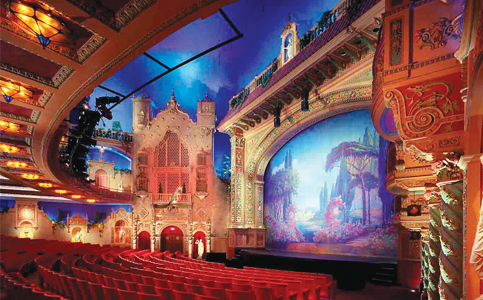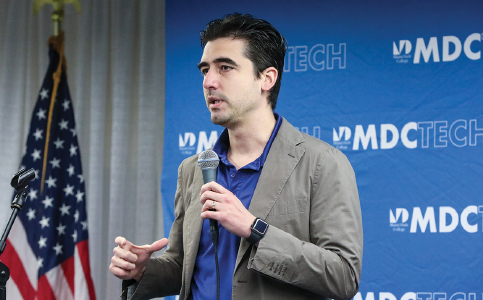Mayor vows to restore three historic Miami venues

Advertisement

Three historic facilities in Miami that have long languished will get a burst of his attention in the year ahead, Miami Mayor Francis Suarez vows as he looks at his aims for the final two years of his administration.
In his sights for restoration are the city-owned Miami Marine Stadium and the Olympia Theater as well as the state-owned Coconut Grove Playhouse.
“These three cultural facilities are incredibly important to our growth and evolution,” the mayor told Miami Today last week.
He presented no details on his aims or funding.
The marine stadium on Virginia Key, once used for boat races and concerts, has been closed for more than three decades after it was heavily damaged by Hurricane Andrew in August 1992. Supporters for years have sought to have the unique stadium restored, in one case citing a list of 50 possible uses, but no operational plan outlining funding and use has been presented.
In late October, city commissioners voiced concern over costs to maintain and operate a restored stadium, and they cut authorization for bond funding for the restoration from $61.2 million to $6 million that was earmarked for a boat ramp and boat mooring field offshore, not the stadium itself.
“I would love to see it restored,” Mayor Suarez said in an interview. “I would love to see an actionable and executing plan in place before I leave” office in two years. He conceded that timing would probably prevent completing restoration before he departs as mayor.
The other city-owned facility that he wants to restore is the Olympia Theater at 174 E Flagler St., which will be a century old at the time that the mayor’s final term ends.
Like the marine stadium, a restoration of the classic theater and the city-owned building above it has been an issue for decades. The city consistently lost money operating the theater, which unlike marine stadium is still in use but also in need of upgrades.
The city has been engaged off and on in talks with developers to operate the theater and restore the building above and in August 2022 requested proposals to do that, which got no suitable responses. Another request was expected.
The third facility on the mayor’s checklist, the Coconut Grove Playhouse, has long been owned by the State of Florida. It was operated as a playhouse until it closed in 2006, and plans to restore it or rebuild it have been a political football.
A Miami-Dade County bond issue in 2004 included more than $20 million to restore the playhouse. In the latest county plan, much of the old building would be razed and the playhouse auditorium, which once had 1,130 seats, would be reduced to 300, with the rest of the site to become commercial space whose revenues would fund operating losses of the theater. The county’s cultural affairs department said a playhouse larger than 300 seats could not be sustained.
But those county plans have become entangled in legal issues, with the city on the side of restoring the playhouse with a much larger theater space.
A fourth historic city-owned cultural facility is not in need of restoration, the mayor said. Having gone to the theater at 1508 SW Eighth St. for the first time ever in recent months, the mayor said that the building, built in 1926, seems to be in good condition. Miami Dade College had operated the building as a cinema under a 20-year lease with the city until this year, when the city took control for its own programming. It is now presenting an exhibition on the life of salsa singer Celia Cruz.

:no_upscale()/cdn.vox-cdn.com/uploads/chorus_image/image/72854237/1727878904.0.jpg)
